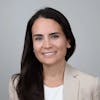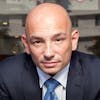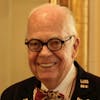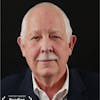How We Made Our Whole Destination More Hospitable - Chuck Davison, Visit SLO CAL

What could it look like to work together to help an entire community become more hospitable and thrive together?
Today, we're hearing a case study in doing this well from Chuck Davison, President & CEO of Visit SLO CAL - who built a groundbreaking, comprehensive program that successfully empowered local businesses in hospitality and beyond to welcome guests and encourage more travel to their destination.
- Follow Chuck on LinkedIn
- Learn more about SLO CAL Welcome
- Visit the SLO CAL website
- Follow SLO CAL on LinkedIn
This episode is brought to you with support from Sojern. Finding and appealing to travelers online means getting to know them, and that's why first-party data - the information you have about your guests - is so important to providing hospitality today. I teamed up with Sojern to study how hoteliers are using this data to drive revenue and build stronger guest relationships, and you can see what we found in this research report: How Hotel Brands Are Using First-Party Data to Drive Revenue & Build Stronger.
Join in the conversation on this episode on the Hospitality Daily LinkedIn page here.
Subscribe to the Hospitality Daily YouTube channel here.
Music by Clay Bassford of Bespoke Sound: Music Identity Design for Hospitality Brands
Josiah Mackenzie: To set the stage, tell us your role today, and then I'd love to hear your thoughts on how you think about tourism and travel broadly and how it intersects with the hospitality industry.
Chuck Davison: Yeah, Well, thanks so much for having me. I'm the president and CEO of an organization called Visit SLO CAL, and we are the destination marketing and management organization for San Luis Obispo County, California. Halfway between LA and San Francisco in a 400-mile radius, about 33 million people that we are exposed to in this destination. And so for us, it's really a connection between wanting to bring visitation to this market and continue tourism thriving here, but the balance of that with resident quality of life. And so we have one lens in which we kind of manage the business, and that's if our work doesn't improve or maintain the resident quality of life, we shouldn't be doing it. And that's a little bit different maybe than some destination organizations. For us, we live in such an amazing and beautiful part of the country that we want to make sure from a sustainability and stewardship standpoint that we're protecting this beautiful place that we get to call home.
Josiah Mackenzie:
I don't hear a lot of people talking about that. I was actually talking to someone way up on the California coast who had a big beef with short-term rentals and Airbnbs and whatever people's thoughts are about those. It's interesting because he was a proprietor of a smaller hotel, kind of felt the community was falling apart. So it's interesting you're thinking holistically about, of course, tourism and hospitality businesses matter, but so do the people that live in the community.
Chuck Davison:
Tourism's the number one economic driver in our community. It was worth $2.15 billion in 2022. So it's a major portion of the market makes up almost 10% of the countywide GDP. But with that said, the majority of our business owners here live here. We're not owned by a lot of outside organizations. 80% of the properties here are owned by locals when we talk about the lodging community. And because of that, they think about the market differently. We could all live in bigger places. Most of these businesses could be in places where they make more money. They choose to be here because it's such a special place to live. And so we want to make sure that we're proactively managing this destination to what we want it to be rather than reactively allowing it become something that we never intended.
Josiah Mackenzie:
So people can get to know you a little bit, folks that haven't met you yet, can you speak a little bit to some of the career experiences that you've had? And then I'd also love to hear your work on the California level, and then let's talk about what you're doing in your area. But tell us a little bit about your career journey to your role today.
Chuck Davison:
Yeah, I'm super blessed. I was born and grew up in a family in Las Vegas. My family's now been in Las Vegas for 93 years. I didn't grow up in hospitality. My dad was a general contractor, my mom was a ICU nurse. But I went to UNLV. And at UNLV, by default, you're going to have some association with hospitality. My degree is actually in business and marketing. But while I was at UNLV, Mirage Resorts was the largest casino company at the time in the world, and they would select one student out of UNLV each year to go into their MAP program, the Management Associates Program. And I sometimes say they ran out of qualified people and they picked me. And I was blessed enough to go through a four-year internship at the Golden Nugget in Las Vegas where I worked in every single department except for engineering and finance.
So I started in room reservations, I worked at the front desk, I made beds and cleaned toilets and housekeeping, I worked in food and beverage. And I spent two years on the casino side dealing craps and blackjack and fixing slot machines and working in surveillance and working in the casino cage. And the whole presence of that program is to raise people up to eventually be presidents and CEOs of hotels. And so I had the fortunate opportunity to work for Mirage for about nine years, and then got recruited to go to work for a company called Icahn Gaming. Carl Icahn, the 40th wealthiest man in America at the time, owned three casinos in Vegas and one in Atlantic City. And I became the youngest vice president of the history of the company at 29 managing their marketing, sales, and entertainment division. And that was an amazing experience, and I always thought that I would end up running a hotel in Las Vegas. But as I got one step away, my wife and I had our first baby girl when I was 33 and I started having some health issues.
I went in to see a doctor and he said, "You're either going to have a heart attack by the time you're 40 or you got to get out of the industry." And we had to take a serious look at life. The pace of Vegas is amazing. It's such an incredible destination with so much energy, but it's really hard to find balance there, especially depending on your age and what you want your life plan to be. And so my wife and I made a decision that I would take a step away, and I did a four or five-year stint in nonprofit really trying to, I guess, redeem my soul for working in the casino industry that I was fortunate enough to grow up in. And then I got recruited. Expedia was opening a brand new division, their activities division, so everything that you can do and play with in a destination, that was part of this portfolio.
And they were looking for somebody on the ground in Las Vegas who had connections who could help set that up. And I fortunately had a long history there. And I went to work at Expedia as a general manager of the West Coast on their activities division called Destination Services, and within six months took over the US and then ultimately North America, and became a vice president there and had an amazing opportunity to run a team that was responsible for selling all the really cool things you can do when you go to visit a place. And then, after about five years, I was on the road about 20 days a month and we had our fourth daughter. And I looked at my wife and said, "This just isn't sustainable. If I want to stay married and I want to enjoy my family and I want to be there to see my four girls grow up, we need a quality of life change."
And at the time, there were two opportunities. One was to move to Costa Rica where I always thought I would spend time. And my wife said, "We have four girls under 10 and third world healthcare is not our thing." And the second opportunity was Pismo Beach. And so we relocated to Pismo Beach without knowing one person and without having a job because this is where we wanted to raise our kids. And now I'm blessed enough to be the CEO of the destination organization in one of the greatest places in the world. So it's all worked out pretty well.
Josiah Mackenzie:
What a journey. I want to talk more about what you're doing in that capacity, but tell us just a little bit about what you're doing at the state level because it feels all so interconnected. You are friends with Cassandra here in San Francisco doing good things for San Francisco's tourism organization, but what are you doing on a state level?
Chuck Davison:
Yeah, I'm really fortunate with the work that we've been able to do in our market going back to when I took over in 2014 to have really elevated this destination, and that has brought attention and spotlight from the state. So I serve on Visit California's CEO Council. There's 15 of us across the state. There's I think 108 destination organizations in the state of California now. 15 of us serve Caroline Beteta, the CEO of Visit California, in helping inform some of the decisions that are made at the state level and really work in concert with her.
This year alone, we took two CEO missions internationally, one to Tokyo with the lieutenant governor and then one over the summer to London and Paris to, again, from both a travel perspective of encouraging travel back into the US but also from a diplomatic perspective of trying to make sure we're connecting with the governments over there and make sure they understand they're welcome in the state of California in the way they visit here. And I also have the great pleasure this year of serving as the chair of the California Travel Association, which is our state advocacy organization that employs two lobbyists in Sacramento to do the work for the tourism and hospitality industry to make sure that we're protecting this entity that all of us are working really hard to advance.
Josiah Mackenzie:
So I'm going to ask you a pretty high-level question, but I'm just always curious to hear people's perspectives on this. And that is, why does travel matter? Why does hospitality matter? You spoke to the economic impact, which is just huge, and I think some people don't recognize the impact. So I don't want to diminish that, but also, is there anything else come to mind in terms of why it's so worthwhile to be focusing on promoting travel, promoting hospitality?
Chuck Davison:
Yeah, I think it's two things really outside of, I think a lot of times we focus on the economic piece. I'm going to set that aside for a second. One is wellness and wellbeing. People travel to sometimes escape or to be able to refocus. Our tagline here is life's too beautiful to rush. We're built on a mechanism of being able to reconnect with that special person in your life. It might be your brother or your sister or your parents. It might be your fiance or your spouse. It could be your best friend, a whole host of things. But that ability to travel and spend time in an environment with people you care about is super important to the wellbeing of who we all are. But I think more than that, we say, I like to say everything starts with a visit. So when you think about changing the demographics of the world, people don't move to a destination that they've never been to. People don't start a business in a city or a country they've never visited.
As a matter of fact, Cal Poly, which is one of the largest technical universities of the West Coast based here in San Luis Obispo, when I guest lecture there throughout the year, I always ask the students, "How many people visited here before they made the decision to come to Cal Poly?" And it's usually 98%. There's usually one or two, typically international, that didn't do that. But the majority of people visit before they make a decision to do something else. And that's important because when you talk about the demographic of our community, which is 85% white, we have a huge focus on our DEI initiative.
And our cities, we have seven municipalities in an unincorporated county, they're not in a position to change the demographic of who lives here, we are. If we can attract the right person to this destination and a diverse audience to this destination, those people will realize how special this place is too. And over time, they will move here and we will change the demographic structure of this community that we're fortunate enough to call home. That's an important aspect that gets lost most of the time in travel and tourism. And it's something that I'm really passionate about and I love that we're able to influence that. So it all starts with a visit.
Josiah Mackenzie:
I appreciate you speaking to that because I talk to a lot of people, and that is a fresh perspective, a fresh take, underscoring the importance of all of this. It's such, such important work. And then obviously, the economic impact provides livelihoods and jobs and enables people to provide for the families, and that's really, really important work. I'd love to talk about the SLO CAL Welcome program that you put together. And I guess to tee that up, is there any kind of background? What I'd love to get into is what was the origin of all of this, but how would you introduce or set the stage for how this all came to be?
Chuck Davison:
Yeah, so SLO CAL Welcome is our online, self-paced, free customer service training program that we rolled out just about a year ago that's free to everyone. We built it for the hospitality industry. But we have found through the process there's a whole group of people that you wouldn't normally lump into hospitality that are currently using it. And so that's been really fun and exciting for the destination. But there is a backstory to that. So if you were to go back to 2016, we developed our very first strategic plan as the organization. I had been here just over a year, and we set out to craft what's the organization going to look like over the next three years? And one of the things that was identified in there was that we needed a destination management strategy or a tourism infrastructure master plan. They go by many different names now, but they're all essentially the same thing.
And this plan is, for us, a 30-year look into the future about, again, how do we proactively make this destination what we want it to be rather than reactively allowing it to become something we never intended. In that destination management strategy, which took about two years to facilitate and included every city manager from our seven municipalities along with the county administrator from the county, and then big strategic partners like Cal Poly and the airport and other individuals, we ended up mapping to 28 recommendations that we needed to somehow find a way to advance over the next 30 years. And those 28 recommendations are broken to three buckets. One bucket is items that we at Visit SLO CAL own and fund, one bucket is items we champion, and one bucket is items we advocate for.
So in the bucket of ownership and funding, one of the items that was identified in the visitor profile studies that were conducted during the development of the destination management strategy is, as a destination, on average, we were scoring 67% in customer service. Now, when you're spending, our organization was spending about $3.5 million a year just trying to attract people here through online and broadcast advertising. And so we all know that it's much easier to get a customer to come back than to attract a new customer. And the cost of that is much, much less. And so we realized we're spending a lot of time trying to drive these people here, and they're coming here and maybe not having the experience that we need them to have.
And so we brought this to the steering committee, and it's interesting because one of the city managers said, "Well, 67% isn't that bad." And I said, "Well, if your student came home with 67% on their test, how would you feel about that?" He said, "Yeah, that's not going to work." And so it took that conversation to kind of flip the script for people to understand that, sometimes in the central coast good is good enough. We have a bit of a siesta mindset here of, hey, the waves are really good today. It's 2:00, let's close the business and go surfing. And that's not the mindset that's going to sustain business long-term. We need to show up for the customer and meet their expectations and exceed them. And so that's kind of the premise of how this SLO CAL Welcome came about was identifying that there was a challenge, and then determining, as a leadership organization, how are we going to go about solving for that?
Josiah Mackenzie:
I love it. And every great program starts with a strategy behind it, right? It's not just a reactive initiative. Tell me a little bit more about what the program included. What were the main components of it?
Chuck Davison:
Yeah. I am so passionate and excited about this work that we were able to advance. Our team worked really hard on this over a two-year process. We invested with a company called ICOM, who is based in Calgary, Canada. They developed what's called the White Hat Academy for Calgary. If you know anything about Calgary and the Calgary Stampede, they're famous for their white Stetson hats. And so that's their branding model on that. And through a class I was in, Destinations International, which is our international DMO organization, has a education platform called CDME. It's a certified destination management executive program. And so as I was getting my certification, one of the classes I was sitting in, they unveiled this White Hat Academy. And I said, "Man, that is just unbelievable. We need to talk to those people as we try to figure out this customer service platform."
And so we engaged them, and over about 18 months built a platform that has eight different modules. So it's, again, this is a free, online, self-paced program that results in a certification in customer service. And so it's got a beginner, intermediate, and advanced module. It has a module for hotels only. It has a module for restaurants only. It has a module for attractions only. It has a module for DEI. How are we welcoming in our destination? Our destination had a long path of things like China Ready in the state of California trying to get ready for the influx of Chinese travel that was going to come back in 2016, '17 leading up to the pandemic. So we'd already kind of gone through this welcome program, but how do we extend that and make it broader to everyone?
And then it has a module that's focused all on the destination. So again, seven municipalities and one unincorporated county, 3,600 square miles, 21 communities. How do we make sure that somebody standing at a front desk in Pismo Beach can tell somebody about something in Paso Robles if they're going to go there? Because our responsibility as a destination organization is to get people out and about the community, not just have them find their footprint in one individual township. And so that development of that program has really allowed us to help advance what's taking place here in the market. In just a year's period of time, we've had 900 individuals get certified in this program, which has just been absolutely amazing. And as I said earlier, a lot of this is tourism and hospitality, but the local animal shelter put their entire team through the SLO CAL Welcome program, which for me was super cool.
The mayor of the city of San Luis Obispo asked if she could put the entire staff of the city through. I don't know that the city manager's going to allocate time for all of them to go through it, but just the request from the mayor to see the value in the program and want to provide service not only for their community, but for the residents that live here, and I think that's been one of the special things that we've been able to share in our community value sentiment is visitors get the benefit of this, but if you're sitting in a local restaurant as a resident, you get the benefit of it too. You want good service like everybody else. And so this is a scenario where we're able to move the needle for tourism, but we're also able to move the needle for the residents that call this place home.
Josiah Mackenzie:
I love that. I love that so much. And I think there's principles of hospitality we can apply far beyond the business of hospitality, and it's really cool to see that. Do any examples come to mind of a hotel or a hospitality business that you worked with? And if so, I'm curious what the results have been or feedback you got from them.
Chuck Davison:
Yeah. So we have a hotel in Pismo Beach, which is one example, that they set out to really help develop and advance their guest loyalty program. They understood as we did in this customer service scenario that trying to keep those people coming back was going to be much easier than attracting a new audience. And so they assigned their assistant general manager and their executive housekeeper to not only go through this program, but start to unpack, okay, how could we use this to help advance this initiative that we have at our individual property? Which makes sense on the AGM side. Traditionally, you see front of house, but the executive housekeeper scenario is a little bit different and interesting. Again, 80% of our properties here are non-branded. They're independent hotels. So they don't have the luxury of having maybe Marriott training or something like that, which is also a reason that this program was so important.
One of our callings as a destination organization is how do we do for the community what they can't do for themselves? And they weren't going to be able to go out and spend this program, $200,000 to develop and launch this program. They don't have the funds or the ability or the wherewithal to be able to do that. And so as they went through the program and started looking at opportunity, they really focused in on how do we train the back of the house to help make a difference? Those are the surprise and delight conversations and opportunities you don't necessarily even expect as a customer. When you're walking down the hallway and the housekeeper stops what they're doing and looks you in the eye and greets you and says, "Good morning, thank you for staying with us," or, "Is there anything I can do for you in your room that might be of assistance?", or whatever that looks like, that creates a relationship. It creates engagement.
It's an opportunity for another touchpoint with the customer that they weren't necessarily expecting, which is that surprise and delight moment, even in something that small. And so they put their entire team through this protocol. We have a scenario where businesses can become a SLO CAL expert if they'll put 60% of their front of the house team through the platform and get trained. They get amazing plaque and recognition on their website and on our website so that, when customers come in, they see that.
But this organization said, "Hey, 60% of front of the house isn't going to be good enough. We need to get the back of the house involved in this process too." And so they did that, and what they've seen is the engagement scores from their guests go up and the loyalty go up because the guest is saying, "Hey, this isn't an experience that I'm necessarily used to or, again, that I expect at a 60-room property in Pismo Beach." And so it's been really fun to hear, again, the stories from an executive housekeeper on why it's made a difference for her team. And it's excited her team in the work that they're doing. They feel like they're providing value more than just cleaning a room, which has really neat when we talk about the hospitality space.
Josiah Mackenzie:
It certainly is, and I'm smiling just listening to you talk because I feel like you touched on everything that people in hospitality care about, right? Engaging their teams, helping them grow, develop the business outcomes of loyalty, guest satisfaction being higher. So it's so cool to kind of see results across the region, but within the world of hospitality and hotels see results there. I think what also stands out to me is how you have pulled from threads and learnings across your career to kind of put this program together, and also how you think on a global scale. You mentioned visiting Tokyo and London and Paris, and you're taking the best practices from all over the place. And Hospitality Daily has a global audience. There's people all over the world listening. I'm curious what your advice would be for our listeners in general, what you've learned through the program. What would you encourage our listeners to do or think about after listening to our conversation here?
Chuck Davison:
Well, I think one of the learnings for us in going through this was the fact that, although we developed it for hospitality, it includes everyone. And so I would say, as we think about programming, I'm really focused over this next five years on what do destination organizations become? We're not going to be like we were five years ago. And we're morphing now, but we're going to have to morph even more. And so I would really encourage the audience that, as you're thinking about programming, try to think beyond the bounds or the limits in which the program is being created. If we had simply gone in that program, if it's for hospitality only, we would've never got where we are today. Because the other interesting thing about that program, it's now become a workforce development tool. We now have young students in both Cal Poly and at the local high schools who are going through this program, and that's giving them a foundation from the beginning that's going to introduce them to a new audience.
They don't necessarily work in tourism and hospitality yet. But it's giving them tools, quite frankly, that even if they don't work in tourism and hospitality, are going to be a benefit to them in whatever industry they choose to call home. And so I would really encourage the audience to be thinking beyond the bounds of what program creation looks like, and how do we really kind of turn that upside down on its head and see how we can influence other industries? One of the challenges that we all know tourism and hospitality have is the younger generation isn't considering us as an opportunity for their career path. And we need to find ways to bring that group into our fold and help excite them as we're excited about this amazing work that we get to do.
I tell our team all the time, "We aren't curing cancer. We're not smart enough." I'm not smart enough to do that. I sure hope somebody figures it out. We're not sending rockets to the moon, although Vandenberg Air Force Base is just down the street from us, and they're sending two rockets up with payload every single week, and so we're taking advantage of West Coast space tourism. But we are selling fun and creating memories. And so how do we get this younger audience to understand that and see a career path in doing that? And I think looking beyond the bounds of the way we currently structure programs is one way to get there.
Josiah Mackenzie:
I love it, Chuck. I love what you're doing. Thank you for sharing some of this with us. I'm going to include links in the show notes where people can learn more about your organization, about you, follow you on social media, all that good stuff. But thank you so much for taking some time to chat with us and share your insights and perspectives.
Chuck Davison:
Thanks for having me. Honored to be with you today.
Most Popular Episodes
Check these out:























